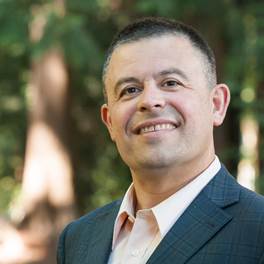약력
Yves Tiberghien (Ph.D. Stanford University, 2002) is the Director of the Institute of Asian Research at the University of British Columbia (UBC), Executive Director of the UBC China Council, Co-Director of the UBC Master of Public Policy and Global Affairs (MPPGA), and Associate Professor of Political Science.
He is a Senior Fellow at the Asia-Pacific Foundation of Canada, a Senior Fellow with the Global Summitry Project at the Munk School of Global Affairs, and a visiting professor at Tokyo University and Sciences-Po Paris. Dr. Tiberghien was an Academy Scholar at Harvard University from 2004 to 2006.
He specializes in East Asian comparative political economy, international political economy, and global economic and environmental governance, with an empirical focus on China, Japan, Korea, and Southeast Asia. He is deeply interested in comparative institutional reforms that address the middle-income trap, the resource curse, and the interface between global economic forces and domestic politics. His works also focus on trade-offs between economic policy goals and public goods such as biodiversity protection, transparency in food policy, and climate change issues. He is scheduled to publish The Political Economy of East Asia: Regional Transformation and Global Impact (Palgrave, forthcoming).
Yves is also working on a multi-year project on systemic risk and global governance innovation, focusing on China’s preferences and choices (including the G20, climate change, AIIB, and One Road, One Belt).
In 2007, he published Entrepreneurial States: Reforming Corporate Governance in France, Japan, and Korea (Cornell University Press in the Political Economy Series directed by Peter Katzenstein). His most recent publications include three books (亚洲与世界未来 (Asia and the Future of the World). Beijing: 社会科学文献出版社 (Social Sciences Academic Press, China); L’Asie et le futur du monde, Paris: Science Po Press, 2012; and Leadership in Global Institution-Building: Minerva’s Rule, edited volume, Palgrave McMillan, 2013). He has also published many articles and book chapters on Japan’s and China’s political economy, global governance, global climate change politics, and the governance of agricultural biotechnology in China and Japan. He is working on articles and a book on China’s role in global governance.
He is a Senior Fellow at the Asia-Pacific Foundation of Canada, a Senior Fellow with the Global Summitry Project at the Munk School of Global Affairs, and a visiting professor at Tokyo University and Sciences-Po Paris. Dr. Tiberghien was an Academy Scholar at Harvard University from 2004 to 2006.
He specializes in East Asian comparative political economy, international political economy, and global economic and environmental governance, with an empirical focus on China, Japan, Korea, and Southeast Asia. He is deeply interested in comparative institutional reforms that address the middle-income trap, the resource curse, and the interface between global economic forces and domestic politics. His works also focus on trade-offs between economic policy goals and public goods such as biodiversity protection, transparency in food policy, and climate change issues. He is scheduled to publish The Political Economy of East Asia: Regional Transformation and Global Impact (Palgrave, forthcoming).
Yves is also working on a multi-year project on systemic risk and global governance innovation, focusing on China’s preferences and choices (including the G20, climate change, AIIB, and One Road, One Belt).
In 2007, he published Entrepreneurial States: Reforming Corporate Governance in France, Japan, and Korea (Cornell University Press in the Political Economy Series directed by Peter Katzenstein). His most recent publications include three books (亚洲与世界未来 (Asia and the Future of the World). Beijing: 社会科学文献出版社 (Social Sciences Academic Press, China); L’Asie et le futur du monde, Paris: Science Po Press, 2012; and Leadership in Global Institution-Building: Minerva’s Rule, edited volume, Palgrave McMillan, 2013). He has also published many articles and book chapters on Japan’s and China’s political economy, global governance, global climate change politics, and the governance of agricultural biotechnology in China and Japan. He is working on articles and a book on China’s role in global governance.

